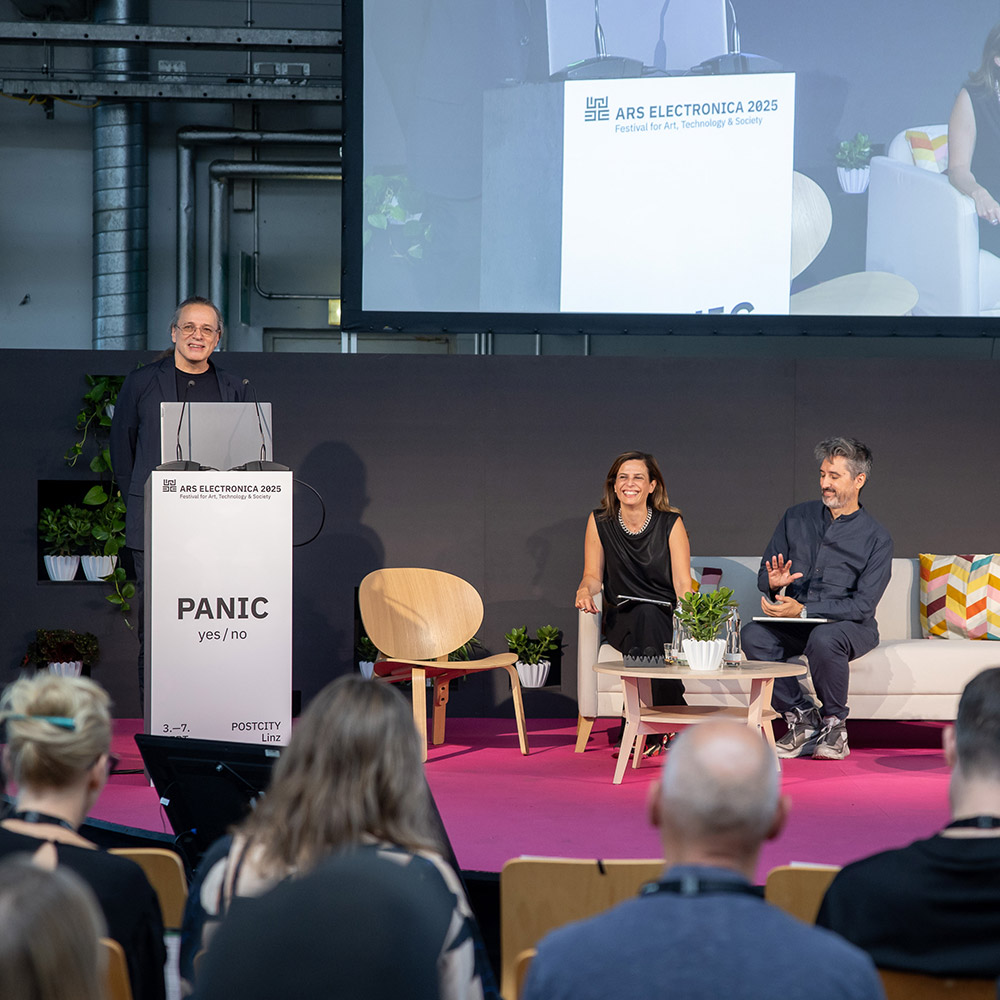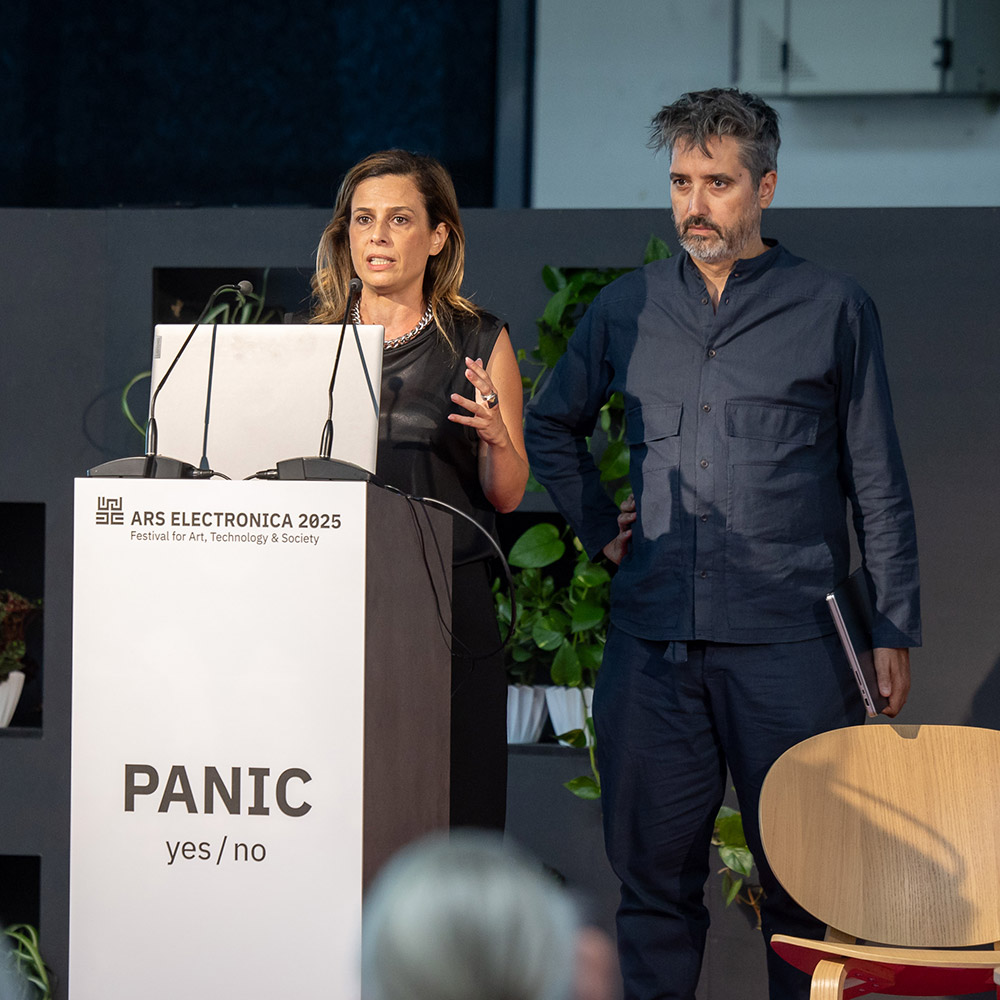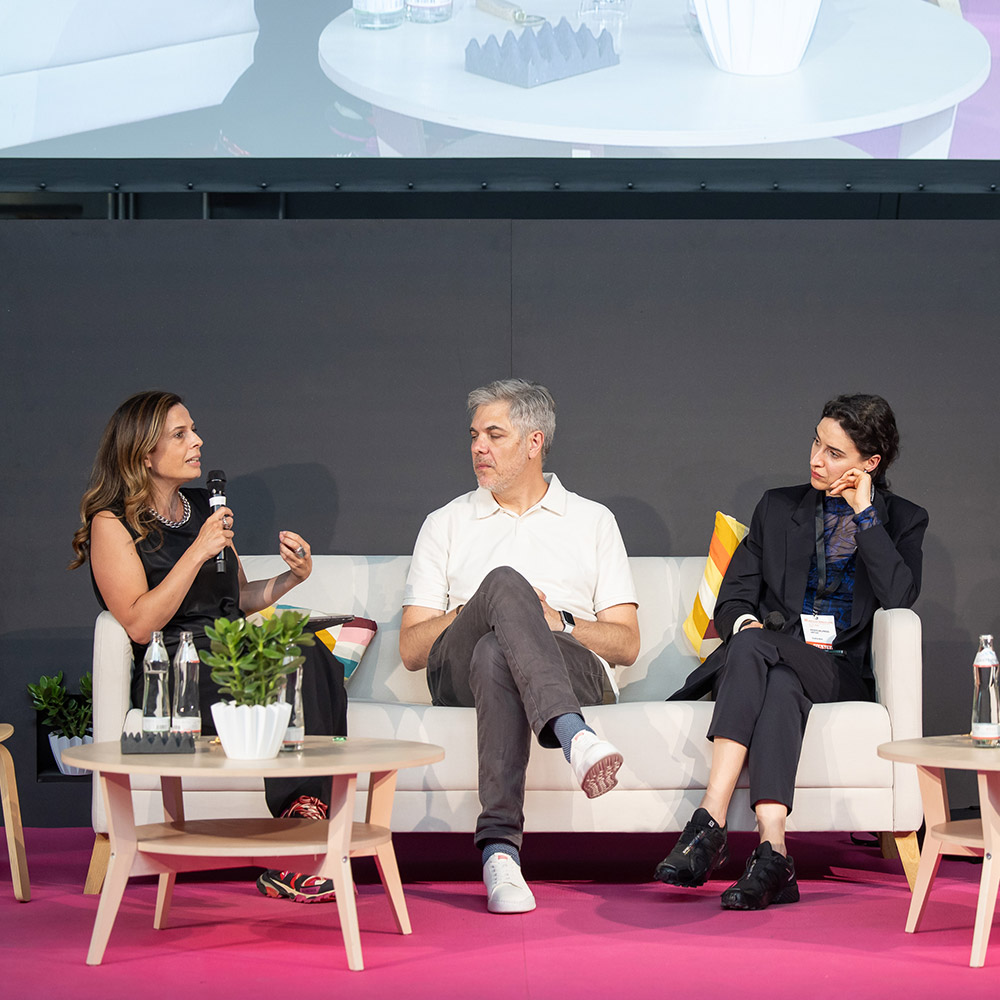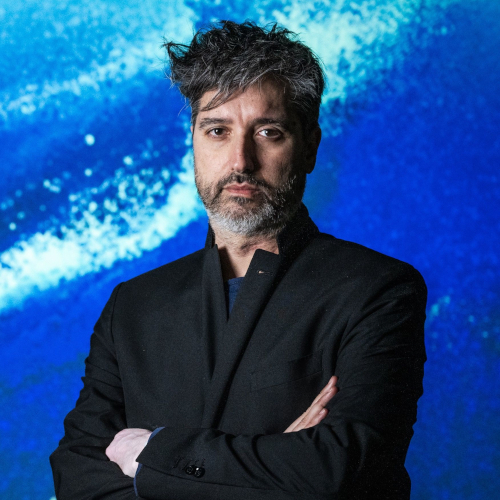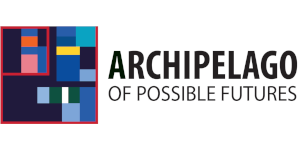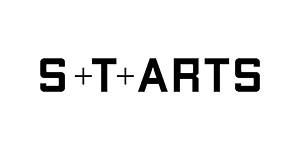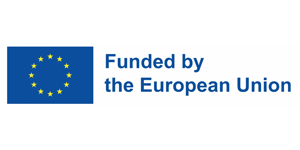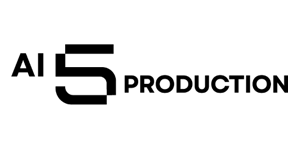In 2025, panic is no longer a moment, it is the atmosphere we live in. From algorithmic warfare to runaway AI, from surveillance infrastructures to climate tipping points, a creeping anxiety defines the public imagination.
But what if panic is not just a symptom of collapse, but a precondition for reinvention?
Archipelago of Possible Futures is a one-day forum that traverses from panic into possibility. It is a journey through the infrastructures of our present moment, the cracks in their foundations, and the imaginative blueprints of what could emerge next. The forum unfolds across three movements—Reckoning, Rebuilding, and Reimagining—as we confront the rise of authoritarian infrastructures, forge Europe’s democratic alternatives, and venture into visions and speculations for future democratic technologies.
Inspired by the STARTS Prize 2025 winners—AI War Cloud Database by Sarah Ciston and Sensing Quantum by LAS Art Foundation—this forum invites artists, scientists, policymakers, critical technologists, and cultural workers to ask:
Who builds the infrastructure and the technological stack we live in?
What systems of power and what politics does it serve?
And how can we reclaim its layers—material, cognitive, planetary—as sites of collective agency?
This is not a policy summit. Nor is it a traditional symposium. It is a curated choreography of high-stakes ideas, speculative infrastructures, and radical imagination—designed to provoke, connect, and equip.
Launched at the 2024 New European Bauhaus Festival in Brussels, the Archipelago for Possible Futures is a growing platform connecting Europe’s cultural, scientific, and tech institutions. In response to today’s urgent ecological and digital transitions, it offers a space for collective imagination, experimentation, and collaboration.
We link museums, biennales, foundations, and design studios with Europe’s innovation policy and cutting-edge public infrastructure—supercomputers, AI labs, and quantum research—to shape inclusive and sustainable futures.
